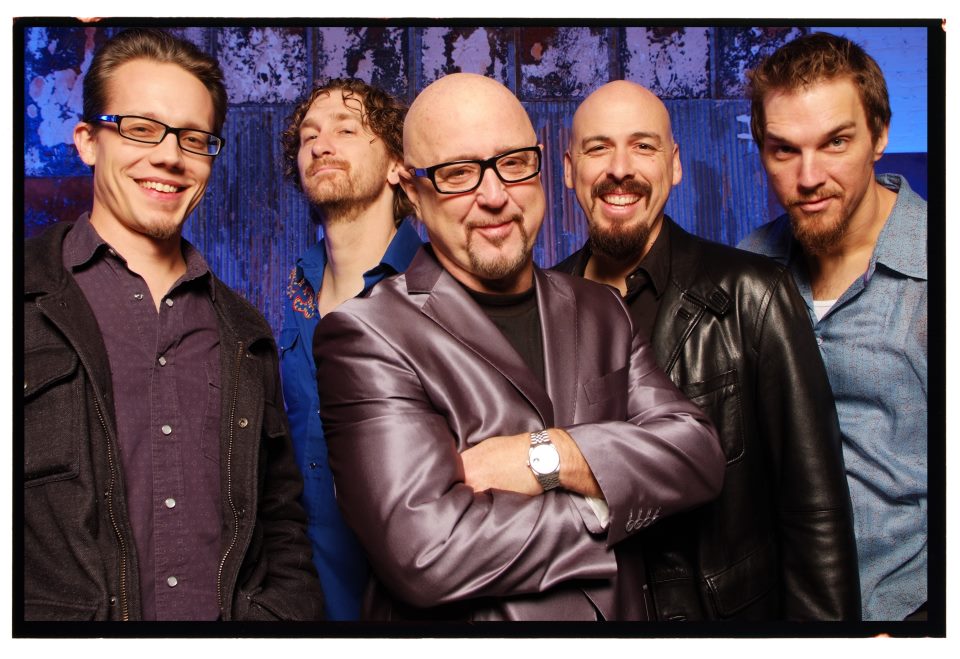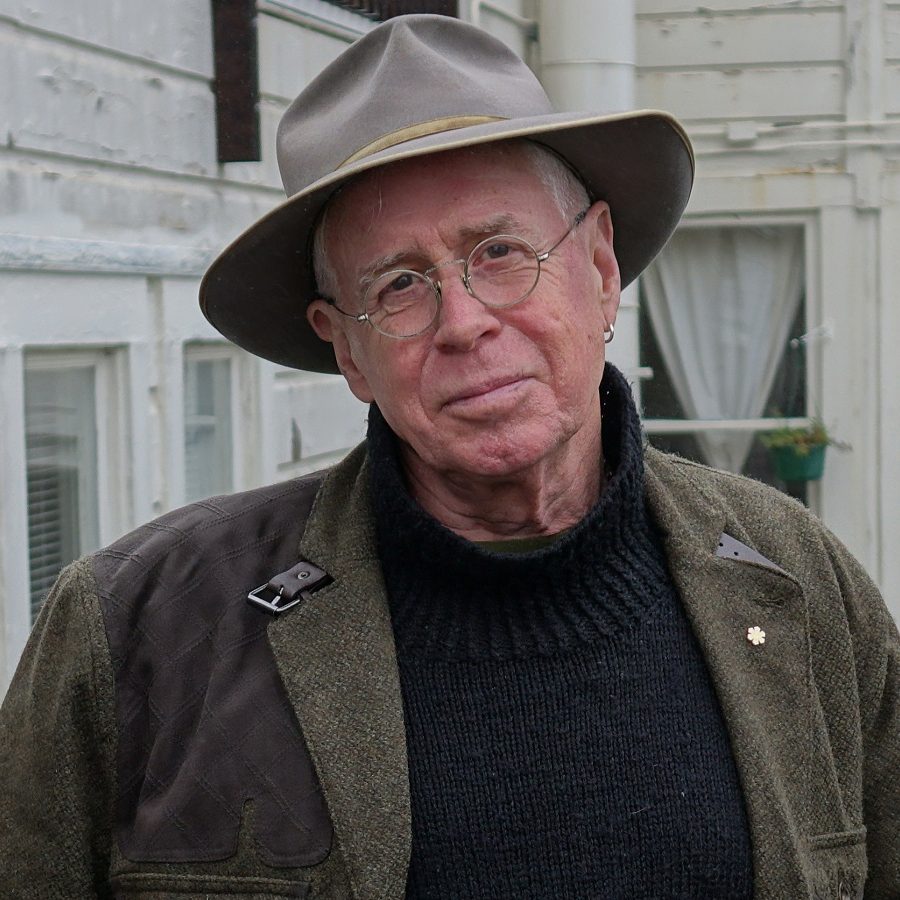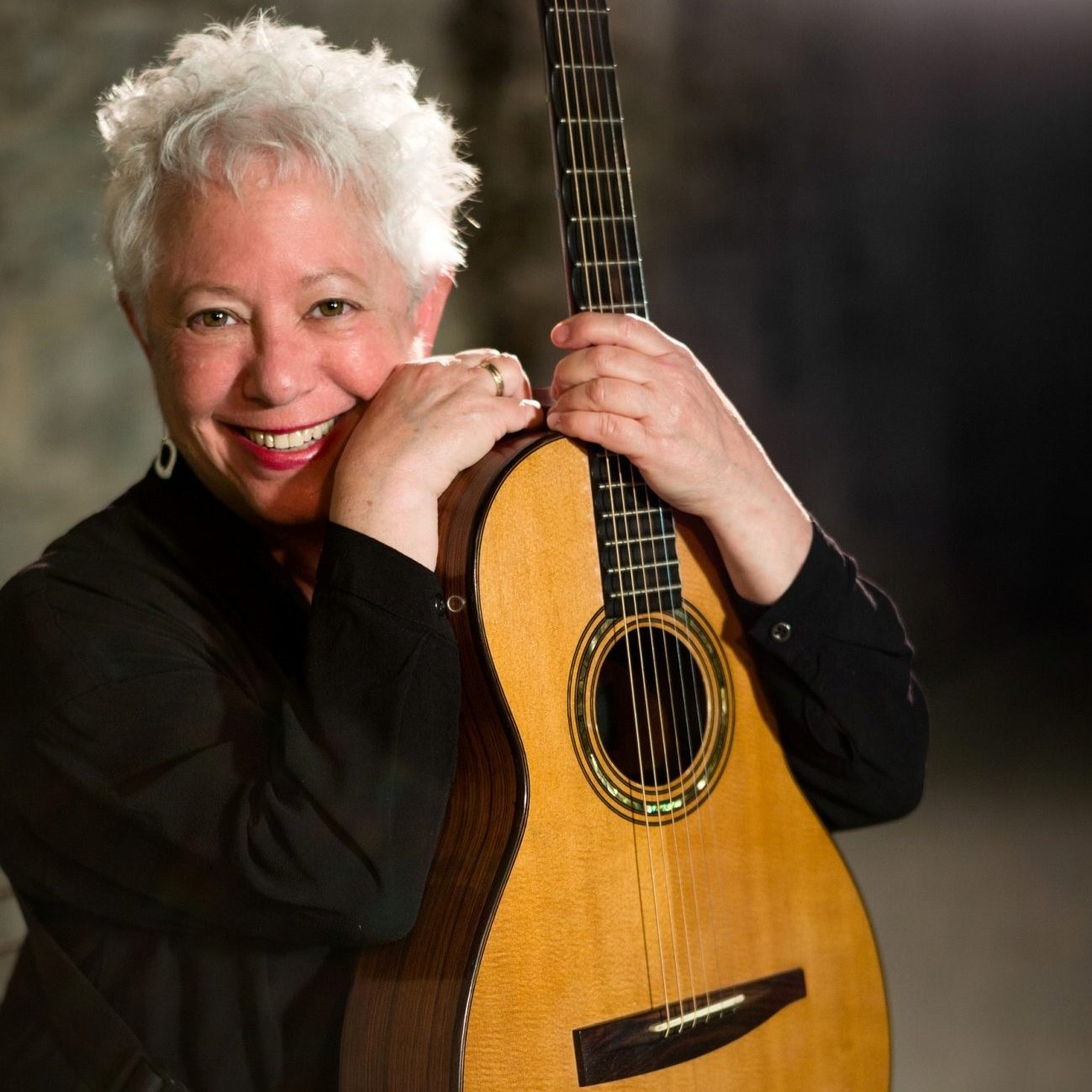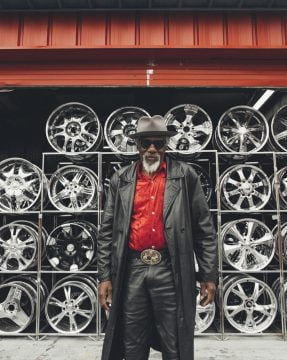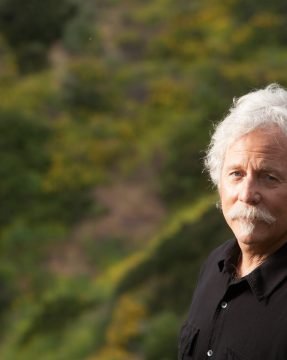If the idea of success in music revolves around “a certain way of doing things,” count on the Fabulous Thunderbirds’ Kim Wilson to chuck that concept and strike out on his own path. It’s not that he’s always had that kind of freedom, but after a certain amount of time building his legacy in the music industry, he’s earned himself enough flexibility to go about things differently. For starters, Wilson keeps the Fabulous Thunderbirds on their toes by avoiding set lists and going by the feel of the evening. Then there’s the way the band tours nowadays: Rather than launch lengthy stretches that involve mostly clubs, Wilson prefers festivals and casinos where he and his boys can cut loose. It’s an approach that allows him to balance his personal life with the music he so loves to perform.
Wilson co-founded the Fabulous Thunderbirds in 1974 with Jimmie Vaughan and, in 1979, the band released its self-titled studio debut. He hasn’t slowed down since, even while the members have undergone significant changes. Wilson remains the only original, but alongside Johnny Moeller (guitar), Steve Gomes (bass), Kevin Anker (keys), and Wes Watkins and Rob Stupka (drums), he recorded and released a new album, Strong Like That, this year. Combining Wilson’s compositions with covers from an array of legends like Johnnie Taylor and Clarence Coulter, the album is packed with lively energy and a blues-influenced rock ‘n’ roll.
Strong Like That shows the harmonica player and vocalist still has a lot to say when it comes to both of his instruments, a point he continually reinforces off-stage when he’s communicating with fans via the band’s blog. “Being a musician is all about leaving a legacy. And that’s not about money. That’s about music,” Wilson wrote in October. “If you can’t leave a musical legacy, if you can’t be remembered for what you did, there’s no sense in doing it.” He’s proof positive for any musician at any stage that, even though there can be a standard path toward success, hiking off in your own direction is equally rewarding.
Besides guitar, harmonica has been credited with being the staple instrument for the blues, but really it’s the person behind the instrument that infuses it with a particular flavor. What does the harmonica allow you to say that another instrument wouldn’t?
A harmonica is very close to you. It’s inside you. That’s how close it is. You can do more things with a harmonica, expressively, than you can with just about any other instrument. There are so many different kinds of tonal things you can get and, of course, it’s all improvised. I consider myself a player. It’s not something where I’m doing a part to enhance a song; I’m actually improvising and just winging it. And that’s a big deal for me. That keeps things fresh for me. I improvise everything on the bandstand, even the set list. I don’t have a set list.
No kidding.
I can call off the next one while the one before it is going, and my boys know it. There are certain songs that you almost have to play; I mean some of the hits, obviously, and some of the new ones, too. Other than that, it’s kind of a free for all. I think the guys appreciate that. It keeps everything fresh for them, too. Even the hit songs have a lot of improvisation for them. You know it’s the song, but I don’t sing ‘em exactly the same, and they don’t play ‘em exactly the same.
I love the music more than I’ve ever loved it. You’re not supposed to get worse. You’re supposed to get better at what you do, and I really haven’t gotten, in my mind, to where I want to be until just recently. And I’m still not where I want to be. Of course, you’re always learning, and you want to be able to hear yourself back on a recording and not wince. Very very important. Very important.
That’s probably the key test. It seems like it takes a certain kind of age and maturity and perspective to hit a stride.
Well, to play the kind of music we play, it does. It can’t be contrived; it can’t be just run of the mill. You’ve gotta be at the top of the food chain to be in the business as long as we’ve been in it: 45-46 years now. Obviously, there are arrangements and stuff like that, sure. I think, if it’s not interesting for you, it’s certainly not going to be interesting for the audience.
Do you feel as though playing the harmonica is a different personality than your singing?
Well, how I perform, it’s kinda violent. There can be some pretty moments, but really it’s more kind of …
Primal?
It’s very primal. That’s exactly right. And I think that it used to be that I’d have to really hit the audience to get their attention, and it’s still kind of that way. People, when you give them something else, they don’t want that. They want something that’s going to smack ‘em a little bit. I was always an athlete — I was a football player when I was a kid — and, luckily, I’ve chosen an instrument that’s allowed me to affect people without breaking bones.
Well, there are always eardrums …
Maybe. Oh, I know all about the eardrum thing.
Me, too. With Strong Like That, how did you decide which songs to include? Leslie West and Johnnie Taylor, among the others you cover, are such interesting choices.
It’s not all blues, obviously. That’s the way we’ve always been.
Right, you’ve always straddled different genres.
We just played a bunch of songs and picked the best performances, the ones we thought worked the best.
I love your rendition of West’s “Don’t Burn Me.”
That’s a great track.
There’s a real heat that comes off it. I know you spent a good deal of time in Texas. Do you equate the feeling you were able to create with that particular region?
The Texas sound … I can’t say we ever had a Texas sound. We lived in Texas. In the beginning, we were more Louisiana and now it’s more, maybe, Memphis. I don’t know what’d you call it. It’s a lot of different areas that we come from. I’m a blues singer, so however I sing it, it’s going to come out like that. Now, we’re playing soul beats and soul songs, but how they come out is more of a blues band playing soul and rock ‘n’ roll and blues. It all starts with the blues for us. When they’re playing this stuff on the radio, it always has upset me when they automatically take it to the blues stations. And some of it you could, but a lot of it you could take it to a lot of different stations. I think right now we’re doing well at Triple-A [Adult Album Alternative], I believe. The Triple-A thing, that’s a relatively new thing out there. You used to have AOR [Album-Oriented Rock] Radio, which we would climb to the top of that and then we would get into the CHR [Contemporary Hits Radio], when there were actually 40 or 60 songs they were playing.
Now it’s more like 15.
Yeah, it’s kinda crazy. Triple-A is fine. Whatever gives us more success, we’ll take it. It’s one of those things that’s really out of your control. We did sign this deal with Sony now, which has really helped. It’s been great to be back with them because they’re so well-staffed and they’ve been on the case, they’ve been really working it. I’m really appreciative of that. We feel like every project we do is very special and for it to just fizzle immediately because people aren’t aware of it, so we’re very happy with the Sony deal.
They have the manpower to get the word out because there’s so much taking place these days, in terms of new releases and surprise drops and what have you.
Right.
I read you play 300 shows a year between the Fabulous Thunderbirds and your own solo projects.
I don’t do that many anymore.
Okay, because I was going to ask where you find the energy for that momentum.
I do quite a few shows and I do have the All-Stars, I guess is what you call it, but that’s a lot of going back into the clubs and it can be a real hassle. Even though I love that music and I love playing it, going back into the clubs is just … Boy, you really start, once again, seeing the bottom of the food chain. It’s very difficult. I do it mostly out [in California] now. I do a Christmastime thing. That’s really all I can do. I don’t want to go out there and kill myself, because it’s not worth it — being burned by club owners and people not advertising shows. It’s kind of insane. It’s really taking a step back from what it was when I was a kid, which was a pretty fun way to make a living.
Playing clubs, you have to work literally 300 days a year just to do anything financially, and that’s just not where it’s at with me anymore. I want to enjoy my life; I just got married, after all this time. I want to see more of my wife, and I want to play more shows that are going to get to a lot of people, like festivals. Not necessarily blues festivals. I mean, festivals, casinos are a nice … Casinos are kind of what the clubs used to be, but a little better than what the clubs used to be, as far as the facilities go.
In terms of treating artists with respect or drawing a crowd?
The facilities are beautiful; you have real dressing rooms. It’s a nice way to go. It’s gotten to where there’s a lot of competition in the casinos, a lot of people who had hit records in the past are gravitating to that. You don’t play as many of them. You play more festivals, but it’s always nice to play a casino because the room’s right there. You just come right down and get on stage. I mean, it’s very nice.
I can see why the Las Vegas residencies are so popular. They live upstairs and just go downstairs for work.
I wouldn’t mind having a residency, actually. I go back and forth on that. I don’t know if I’d want to be in a house band or have to play every night. I wouldn’t be playing the same thing every night anyway, even in a residency. I would be doing how I do it now.
Let’s end on a millennial question: Do you think the blues can be applied to modern woes, things like FOMO [fear of missing out] or hook-up culture?
Of course. Well, I mean, guys like J.B. Lenoir were doing that 40, 50 years ago. There’s always different subject matter you can tap into. There are always different emotions you can tap into, as long as it’s not too corny. I’ve spent my whole life trying not to be corny because I just don’t like corny. Modern music is a very, very difficult challenge because all the lyrics have been used. Now, I love putting a different twist on a cliché. That’s the challenge. Putting a new twist on something people have heard a lot — and a clever twist, not a corny twist.
Myself, I like sticking to … well, blues and soul, it’s really all about man, woman, and money. Now, it can be a really uplifting song like, “I love her, she’s the greatest thing that ever happened, she’s so fine, she’s so smart,” you know? Or it can be, “I hate her, she ruined my life.” And people have success with all that stuff: “I’m broke” or “I’m rich.” There are lots of different ways to approach it. I still like the man/woman interaction, and that’s just the way I’ve always been. I listen to some of these old songs; I don’t listen to too much modern music. To me, there’s something missing there. I like to listen to stuff that I’ve been listening to all my life.

